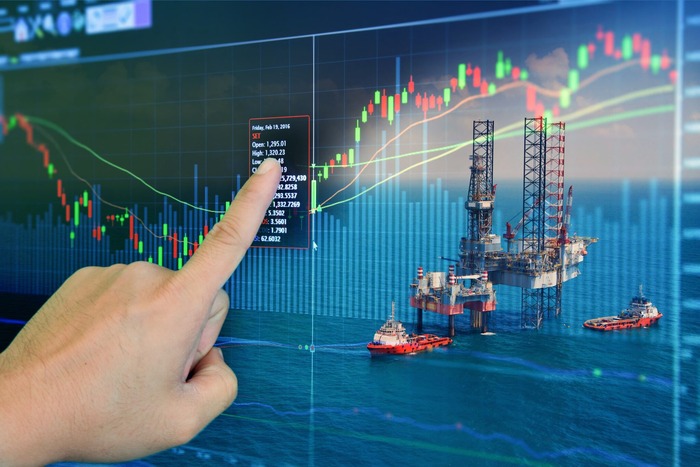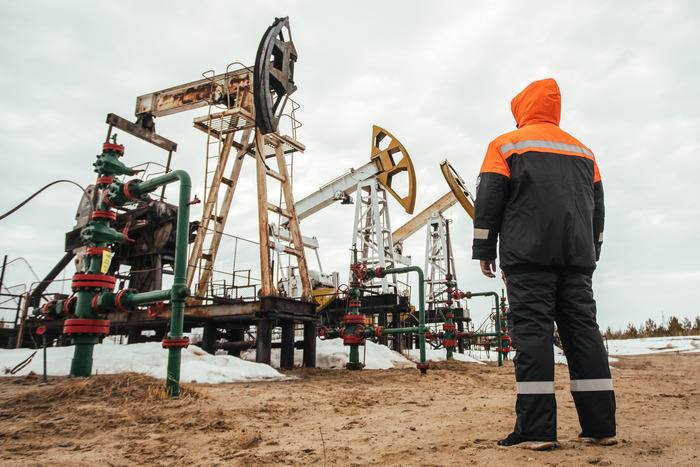Oil, often dubbed the “black gold”, has been a cornerstone of the global economy for over a century. Its uses span a myriad of industries, from transportation to manufacturing, making its demand and supply a matter of global significance. The intricate link between oil markets, geopolitics, and financial systems means that disturbances in one area can ripple across the globe.
These disturbances, be they geopolitical tensions, pandemics, or supply disruptions, can lead to turbulent times in oil trading. Additionally, if you are into Oil trading investment, you may also want to invest in a reliable trading platform like https://oilprofit.app/.
The Historical Perspective: Oil Crises Through the Ages
History offers a lens into the volatility of oil markets. The 1973 oil embargo, initiated by Arab oil-producing countries against the US and its allies, led to quadrupled prices and a global economic slowdown. Fast forward to the 1980s, a surge in non-OPEC production and reduced demand culminated in a price collapse.
In 2008, prices skyrocketed only to plummet in the face of the financial crisis. And who can overlook 2020? The COVID-19 pandemic and a price war between Russia and Saudi Arabia turned the oil industry on its head.
The Mechanics of Oil Trading
Trading oil delves deeper than the simple economics of buy low, sell high. The industry is intricately layered with spot markets, focusing on immediate deliveries, juxtaposed with futures markets, where deliveries are scheduled for future dates. Additionally, the significance of OPEC cannot be understated, as they command a substantial portion of global oil production.
Understanding trading intricacies requires traders to familiarize themselves with pivotal hubs such as West Texas Intermediate (WTI) and Brent Crude, each unique in its pricing dynamics. Moreover, the advent of technology has ushered in electronic trading, further enriching the landscape and adding dimensions to the trading realm.
Crisis Management: Strategies for Trading in Volatile Times
Crisis management equips traders with defenses against the volatile nature of markets. By employing strategies such as hedging through futures and options, traders have the opportunity to secure prices, safeguarding themselves from unforeseen financial downturns. Diversification, whether in asset types or global regions, serves as a strategy to distribute and reduce inherent risks.
On the tactical front, while many traders are proponents of trend-following, confident that markets will maintain their momentum, a contrasting group adopts a contrarian stance, challenging the dominant market direction. Central to both approaches, however, is the imperative need for continuous learning and the agility to adapt in a dynamic trading environment.
The Role of Data & Analytics in Modern Oil Trading
In today’s digital era, data has become the trader’s best friend. Sophisticated algorithms and machine learning models are now employed to predict price movements. Satellite imagery, once the domain of space agencies, is now used to gauge oil storage levels and even predict production rates.
Real-time analytics can give traders the edge they need to make split-second decisions. However, an over-reliance on data analytics, without understanding underlying factors, can be a recipe for disaster.
Geopolitical Dynamics and Their Impact on Oil Trading
Oil doesn’t exist in a vacuum. It’s deeply influenced by the geopolitical landscape. Tensions between nations can lead to embargoes, wars, or sanctions, each impacting oil prices. For instance, the Iranian sanctions in the 2010s reduced global supply, pushing prices up.
Similarly, economic issues in Venezuela slashed its production, altering market dynamics. Even non-state actors, through acts like sabotage or terrorism, can disrupt oil flows. For traders, a keen eye on global events is as essential as watching price charts.
Ethical Considerations in Oil Trading
Oil trading extends beyond mere financial gains, encompassing profound ethical dimensions. The environmental repercussions of extraction, particularly in ecologically vulnerable zones, coupled with human rights concerns in certain oil-abundant areas, challenge the morality of trading practices.
With the ascendancy of Environmental, Social, and Governance (ESG) standards, traders are now compelled to integrate these ethical aspects into their investment choices.
Conclusion: Preparing for the Future of Oil Trading
As the oil industry faces transformative shifts due to the global pivot towards greener energies, traders are increasingly relying to stay abreast of current events and market intricacies. In this changing landscape, adaptability, ethical trading, and a foundation in thorough research will define the success of oil traders in the coming years.


